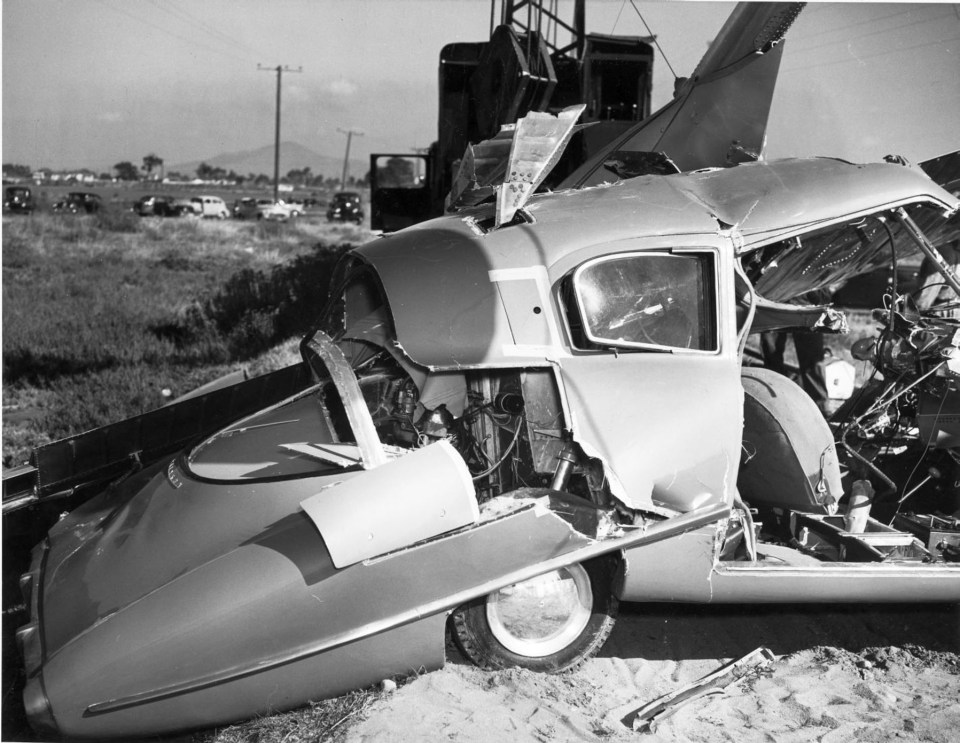HOPES for a flying car crashed and burned alongside the first prototype after it dropped out of the sky due to a rookie error by the pilot.
The Convair Model 118, also known as the Hall Flying Automobile, was bolted to an air-borne plane in 1947 and unfortunately did not survive the flight.
Excitement swirled around the first prototype, with belief that flying cars would become mainstream.
Convair predicted interest in private aviation would skyrocket after World War Two, thinking the models would become so popular they’d be used daily for commuting.
To jump on the trend before anyone else did, the aircraft-manufacturing company whipped the first prototype into shape ready for a test run.
Designers Ted Hall and Tommy Thompson developed a design they called Convair Model 116 which consisted of a two-seater car with collapsible wings.
After refining the idea, Hall created the Convair Model 118 which was more powerful and offered four seats.
The first model had to be light so fibreglass was used for the body of the car and it sported an underpowered engine, generating only 25hp.
When the vehicle was airborne, it would have 190hp and supposedly get you to work right on time.
Pictures of the bizarre prototype appear to show a small plane, almost the length of the car, stuck directly onto the roof of a boxy motor.
After passing multiple ground trials, the Convair Model 118 was ready to hit the skies, designers believed.
Convair had big plans for their flying cars and predicted they would sell for £1,220 a pop.
The Bank of England inflation calculator suggests this would translate to roughly £40,000 per car today.
The company expected the model would be bought in large quantities and rented out at airports.
On November 15 test pilot Reuben Snodgrass, who won a Distinguished Flying Cross medal during the war, took the vehicle for a spin.
To the joy of manufacturers, he was able to fly it around San Diego, and reports quickly spread about the wondrous flying car.
Unfortunately, the positive news only travelled for three days.
Despite being a popular concept across the nation, having financial backing, and years worth of designing, the flying car crashed within a week.
During a one-hour demonstration flight, the model faced fuel exhaustion and plummeted into the ground near San Diego.
The car body was completely wrecked with the doors and wings splayed out across the ground.
Despite the fuel guage marking the vehicle as full, the pilot had taken off with barely any aviation fuel.
The pilot survived with minor injuries but word about Convair Model 118 had got out.
Attempts at another prototype weren’t unsuccessful but enthusiasm for the project dropped over safety concerns.
Convair eventually scrapped the program, returning the design rights back to Ted Hall, but a redeveloped version was never produced.
